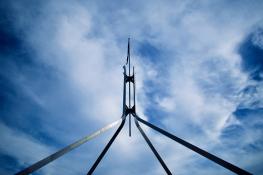
CBAA Submission to the Inquiry into the 2022 federal election
The CBAA made a submission to the Joint Standing Committee on Electoral Matters recommending that the media blackout restrictions on community and commercial radio and television broadcasters be removed.
Media blackouts disadvantage broadcasters without impacting internet and other media providers. Our submission highlighted the role community media plays in helping to reduce the impact of misinformation and disinformation on social media and online platforms.
We emphasised that for community broadcasters a small increase in revenue can have a big impact on the ability of community broadcasters to build a strong base from which to support and connect their communities.
Read our submission below or on our submissions page.
Submission to the Inquiry into the 2022 Federal Election
The Community Broadcasting Association of Australia (CBAA) is the peak body for 450+ licensees delivering over 500 community radio services on AM, FM, DAB+ and online. The CBAA champions an independent and free media, providing a portfolio of programs aimed at strengthening the capacity and sustainability of community media organisations across Australia.
Community broadcasters play a critical role in providing a voice for Australian communities that are underserved by mainstream media – including communities in regional and remote Australia, First Nations communities, culturally and linguistically diverse communities, faith-based communities, youth and seniors’ communities, the LGBTQIA+ community and people with a disability.
Community broadcasting is Australia’s largest independent media sector and is recognised internationally as one of the most successful examples of grassroots media. Alongside commercial and public media, community broadcasting is one of three important pillars in Australia’s media landscape. Community services broadcast nationwide to an audience of over 5 million people per week.
Media blackouts
With Australians no longer consuming media in the same way as they did in 1992, the CBAA considers media blackout laws to be redundant.
The Report on the conduct of the 2019 federal election and matters related thereto made a recommendation that “the media blackout, known as the relevant period in the Broadcasting Services Act 1992 be reviewed with a view that the restrictions on commercial radio and television broadcasters be removed.”
Section 3A, Schedule 2 of the Broadcasting Services Act 1992 also applies to community broadcasters preventing community broadcasters from broadcasting election sponsorship during the ‘relevant period’. It is important that any review of the blackout laws should also consider the impact of the restrictions on community broadcasters.
The media blackout on election advertising and political matter coverage only applies to broadcasters and does not prevent our listeners from being exposed to political advertising and sponsorship on other platforms. Online services and print media are permitted to publish election advertisements and sponsorship during the blackout period. Media blackouts disadvantage broadcasters without impacting internet and other media providers.
Community broadcasters must abide by the journalistic standards in our Community Broadcasting Codes of Practice. News and information on community media can help to reduce the impact of misinformation and disinformation on social media and online platforms.
Community broadcasters are low cost/high output. A small increase in revenue can have a big impact on the ability of community broadcasters to create and fund local employment opportunities, cover the cost of upgrades to ageing technology infrastructure, and increase local news reporting capacity. Sponsorship income from local politicians helps community broadcasters to leverage and grow other revenue streams providing them with a strong base from which to adapt and innovate to support and connect their communities.
Recommendation - Media blackout restrictions on community and commercial broadcasters should be removed.
We appreciate your consideration of this submission and would welcome any further opportunity to assist with the inquiry. Should you wish to discuss this further, please do not hesitate to contact Reece Kinnane, CBAA’s Head of Advocacy and Communications at [email protected] or via (02) 9318 9621.
Best regards,
Jon Bisset
Chief Executive Officer
Facebook comments